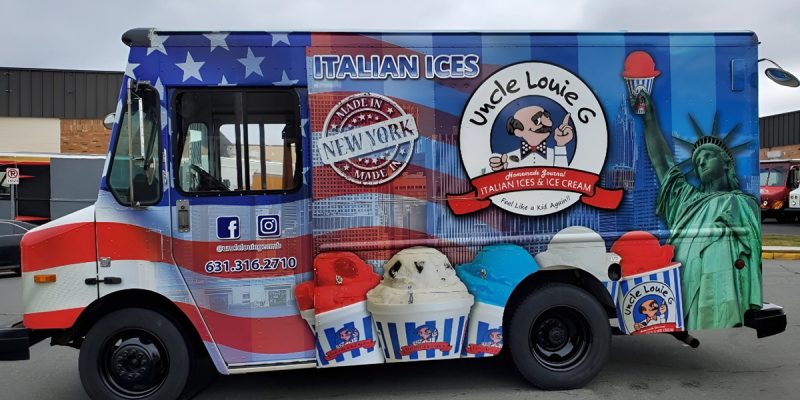If you have been planning a mobile kitchen in Maryland, the timing is in your favor.
The United States food truck market is valued at more than 1 billion dollars in 2025, with projections of steady growth of about 6.6 percent annually through 2030. That growth reflects strong demand for convenient, street-level dining and specialty concepts.
Maryland is part of that shift. The state supports more than 100 authorized farmers markets, which means built-in traffic hubs where food businesses can reach customers. Baltimore also hosts the largest farmers market in Maryland, drawing regular weekly crowds for most of the year. For a well planned food truck or trailer, that is a real opportunity.
Elhaj Custom Food Trucks & Trailers, based in Manassas, Virginia, designs and builds fully equipped, inspection-ready mobile kitchens and serves operators across Maryland, including Baltimore, Montgomery County, Prince George’s County, and the Eastern Shore.
This guide explains why now is a strong moment to invest, what you should think through before you buy, and how a custom build helps you launch with fewer surprises.
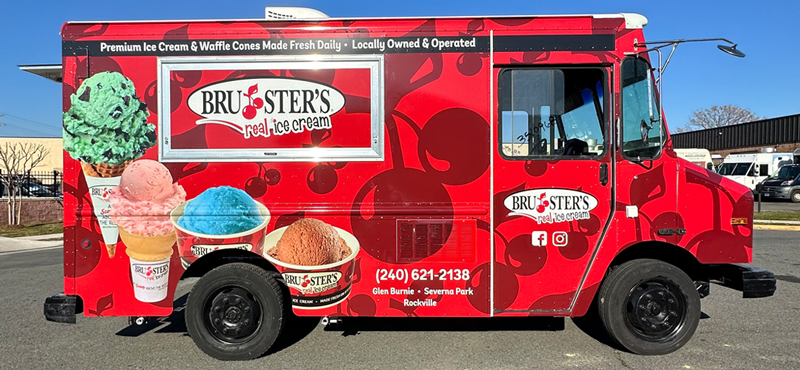
Maryland’s Food Truck Opportunity
Maryland offers a mix of dense urban neighborhoods, tourist traffic, and seasonal events that suits mobile kitchens.
Several factors stand out:
1. Built in customer hubs
Maryland’s network of more than 100 authorized farmers markets, weekend markets, and seasonal events gives mobile vendors regular access to foot traffic without securing a permanent lease. Markets in and around Baltimore, Annapolis, and other cities combine locals and visitors who are open to trying new concepts.
2. Diverse service settings
Food trucks in Maryland serve across environments such as:
- Downtown office districts
- Waterfront promenades and marinas
- College campuses
- Breweries and taprooms
- Festivals, fairs, and music events
A flexible mobile kitchen lets you adjust your schedule as you learn which locations drive the strongest revenue.
3. Industry growth beyond Maryland
Global research firms tracking the food truck market report multi billion dollar valuations and projected annual growth rates around 6 to 7 percent through the next decade. That broader growth gives added confidence that mobile food is a durable segment, not a passing trend.
4. Lower overhead than a restaurant buildout
A food truck or trailer allows you to enter the market with a smaller footprint and more flexible hours than a full restaurant. You still operate a professional, inspected kitchen, but with a different cost structure and mobility.
Key takeaway: Maryland offers steady seasonal traffic, many event opportunities, and a national industry that continues to grow. A well planned, code compliant mobile kitchen positions you to take advantage of that demand rather than competing for a costly brick and mortar lease.
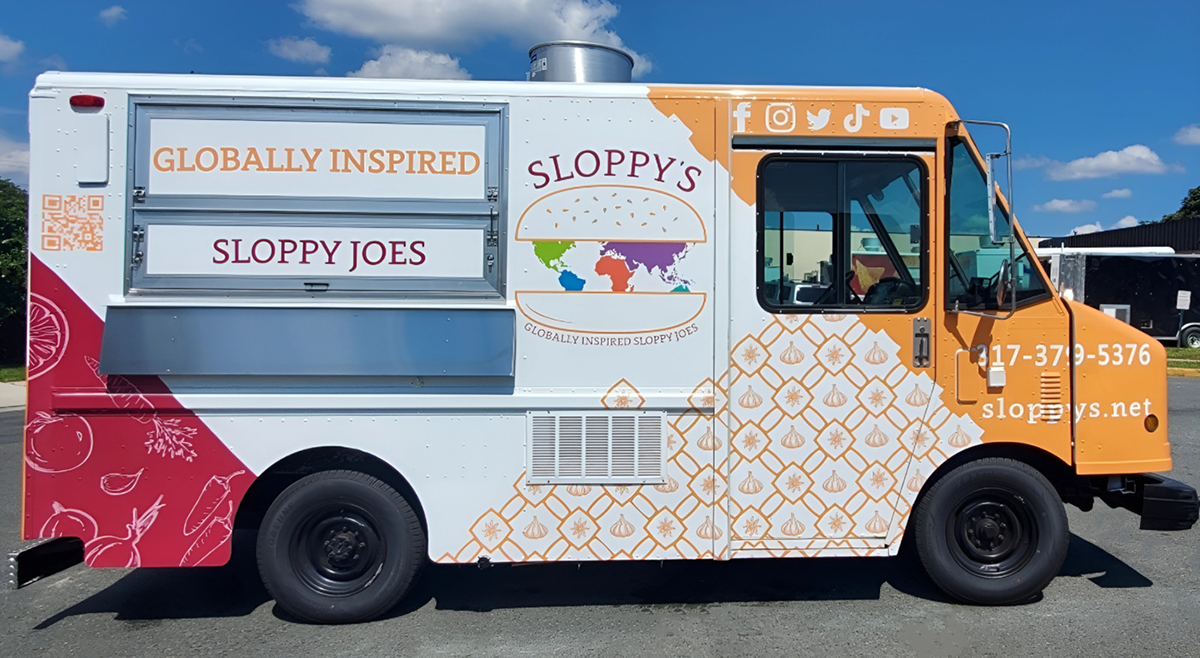
Why Work With a Custom Food Truck Builder
On paper, buying a used truck and piecing together equipment can look like a bargain. In practice, do it yourself builds often lead to:
- Layouts that slow down service and confuse staff
- Electrical or plumbing systems that fail inspections
- Health department delays and rework costs
- Frequent repairs and downtime once you start serving
A specialist builder like Elhaj Custom Food Trucks & Trailers focuses on designing the mobile kitchen around your menu, workflow, and inspection requirements instead of forcing your concept into a random layout.
Advantages of a custom build
Menu driven layout
Elhaj begins with your concept and menu, then designs a floor plan that places cooking, refrigeration, prep, and service stations in a logical sequence. This planning reduces steps for your staff, increases throughput during busy periods, and supports safe food handling.
Inspection ready design
The team builds units specifically to meet health and fire code expectations for mobile food service, including the right number and type of sinks, washable surfaces, proper hood and suppression systems, and compliant finishes in food contact areas. That preparation helps you move through Maryland plan reviews and inspections with fewer surprises.
Commercial grade equipment and finishes
Elhaj uses NSF compliant equipment and durable materials that stand up to daily cleaning and inspection. That choice matters when you are operating in a compact space that has to function as both a working kitchen and a public facing service window.
Integrated power, water, and waste systems
The build process includes accurate load calculations, generator selection, shore power connections, fresh and waste water tank sizing, and plumbing layouts. You receive a unit that is engineered to support your full menu rather than one that constantly struggles to keep up.
Support before and after delivery
A reputable builder does not disappear once the truck or trailer leaves the lot. Elhaj works with owners on layout reviews, documentation for inspectors, and post delivery questions about maintenance, upgrades, or future units.
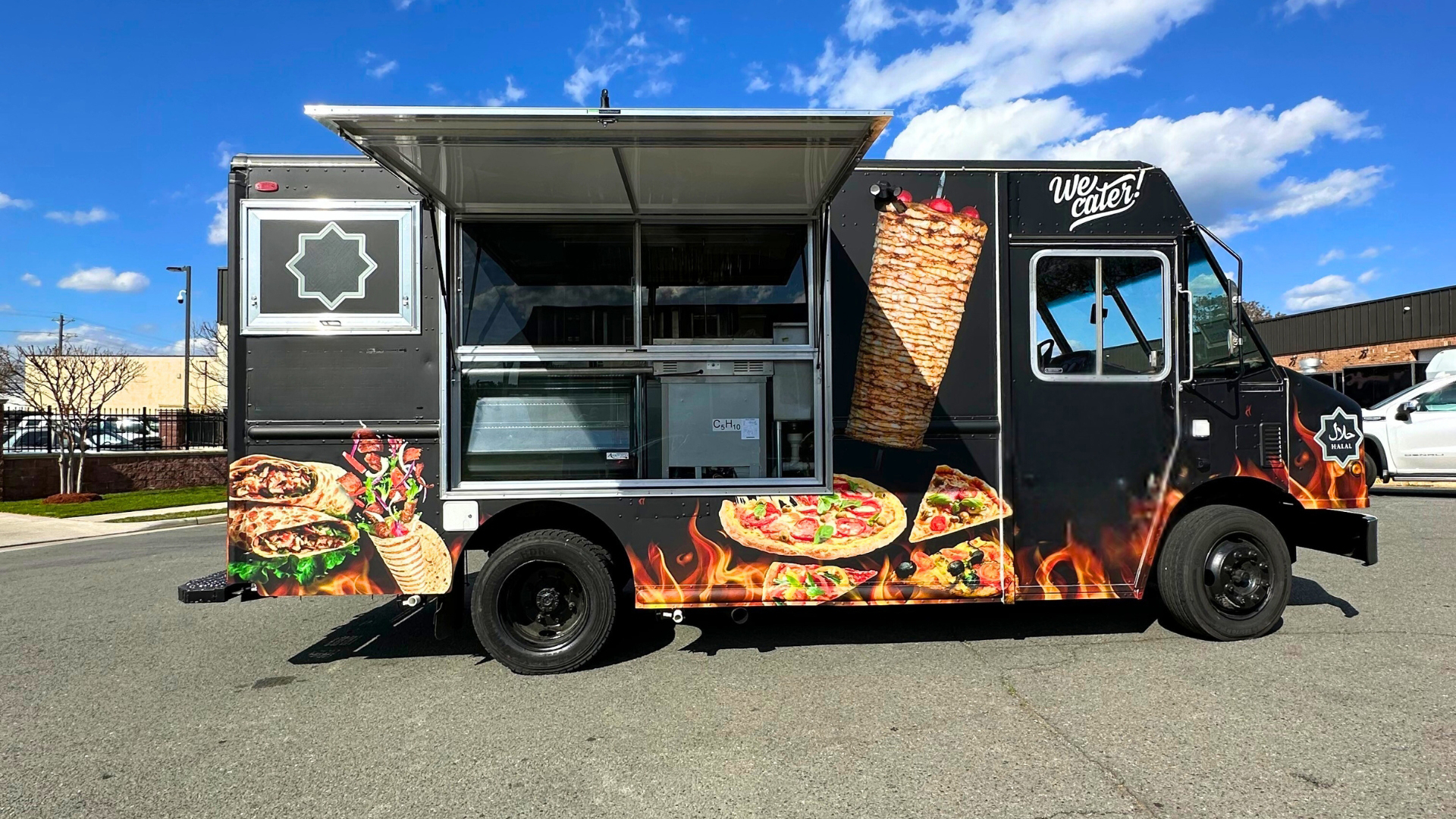
Food Truck vs. Food Trailer: Which Is Right for You?
One early decision is whether a food truck or food trailer makes more sense for your plan. Both can succeed in Maryland. The right choice depends on how and where you plan to operate.
Food trucks
A food truck integrates the kitchen into a self contained vehicle.
Typical advantages:
- No separate tow vehicle needed
- Easier transitions between weekday lunch routes and evening events
- Often more convenient for frequent moves in denser areas like parts of Baltimore
Tradeoffs:
- Higher upfront cost in many cases
- More systems combined into a single vehicle, which can affect repair logistics
You can see examples of this style of build on the custom food trucks page.
Food trailers
A food trailer is a mobile kitchen pulled by a tow vehicle.
Typical advantages:
- Lower starting investment for many concepts
- Flexibility to park at long term locations, festivals, or private properties
- Tow vehicle can be used separately for errands or other business needs
Tradeoffs:
- Requires a properly rated tow vehicle and comfort with towing
- Parking and maneuvering can be more complex in tight city streets or older neighborhoods
Our custom food trailers page shows different trailer sizes and layouts that Elhaj builds.
If you are unsure which platform fits your situation, a planning call with the Elhaj team can walk through your menu, anticipated volume, and target Maryland locations to recommend a direction.
What To Know Before You Buy a Food Truck in Maryland
Buying a truck or trailer is only part of the project. You are also building a compliant food facility and a small business. A clear plan reduces delays and unexpected costs.
1. Understand state and local requirements
Maryland regulates food service at the state and local levels. Counties and some cities manage licensing, inspections, and mobile unit approvals.
Common elements include:
- A mobile food service license or similar permit
- A plan review based on your floor plan and equipment list
- A commissary or base of operations agreement
- A fire and suppression review if you use certain cooking equipment
For example:
- Montgomery County requires a mobile food service license and an inspection of the unit before operation. Details are provided on the county’s Mobile Food Service
page. - Counties such as Queen Anne’s and Anne Arundel publish mobile unit guidelines and plan review packets that explain required documentation, construction materials, and base of operation expectations. You can find these through local health department websites.
Before you sign a build contract, it is wise to contact the health department in every county where you expect to operate and review their mobile food unit information. That step confirms any local variations that might affect your design.
2. Confirm your base of operations
Many Maryland jurisdictions require mobile food operators to have an approved commissary or base of operations. This facility often provides:
- Potable water and wastewater disposal
- Cold and dry storage
- Space for cleaning and utensil washing
- Grease and trash handling
Plan where you will park and service your unit, then confirm that arrangement meets local requirements before you submit your applications.
3. Map out your primary service locations
Make a short list of where you realistically plan to operate in your first year, such as:
- Two or three farmers markets
- One or two brewery or taproom partnerships
- A recurring office park or corporate campus stop
- Seasonal events and festivals
Cross check that list with parking rules, event policies, and mobile unit restrictions in each location. This planning affects your decisions about generator size, holding capacity, and kitchen layout.
4. Plan for power and utilities
Power problems are a common source of frustration for new operators. A detailed build process should include:
- A full inventory of all electric equipment
- Total load calculations
- Generator sizing and fuel planning
- Shore power options for compatible venues
- Clear labeling of circuits and panels
Elhaj integrates electrical and plumbing planning into the design so that your truck or trailer arrives ready to support your menu rather than leaving you to improvise.
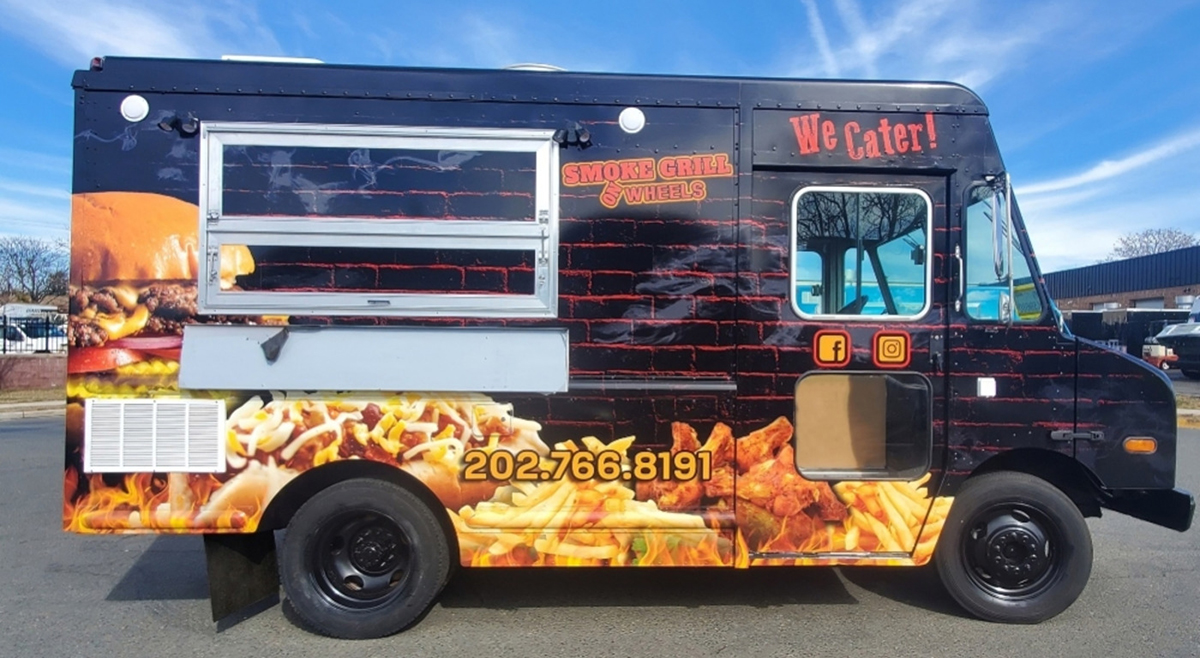
How Elhaj Supports Maryland Food Truck Owners
Elhaj Custom Food Trucks & Trailers focuses on turning your Maryland food truck idea into a code conscious, dependable mobile kitchen.
For Maryland buyers, the process typically includes:
- Concept and menu consultation: You share your concept, service style, and anticipated Maryland locations. The team uses this information to suggest a truck or trailer format, size, and draft layout.
- Layout and equipment planning: Elhaj develops a detailed floor plan with equipment lists, storage, plumbing, and electrical layouts. This plan is designed to support your menu and align with mobile food regulations in Maryland and neighboring regions.
- Construction with inspection in mind: The build uses commercial materials, NSF compliant equipment, and finishes that support cleaning and inspection. Surfaces in food areas are smooth and non absorbent, and spaces are designed to minimize contamination risks.
- Documentation for plan reviews: You receive floor plans, equipment schedules, plumbing details, and other documentation that counties commonly request for plan reviews and license applications. This paperwork saves time when you are dealing with multiple jurisdictions.
- Delivery and walk through in Maryland: After construction, Elhaj coordinates delivery of your truck or trailer to Maryland and provides a walk through of systems, safety features, and maintenance basics.
- Support as you grow: As your business develops, you can return for remodels, upgrades, or additional units. Elhaj also publishes educational content in the Elhaj Food Trucks Blog so you can continue learning about permits, design, and operations. Articles such as “Building the Best Truck in Maryland” focus specifically on this region.
Why Now Is a Smart Time To Act
The combination of a growing national food truck industry, Maryland’s network of markets and events, and accessible regional builders creates a favorable window for new mobile kitchen owners.
When you pair:
- A researched menu and realistic business plan
- A layout designed for Maryland inspections and real service volume
- A build partner that understands mobile food regulations and operator needs
you give your food truck or trailer a stronger foundation than a generic or improvised build can usually provide.
If you are ready to explore what a Maryland focused food truck or trailer could look like, you can start by requesting a quote. Sharing your concept, budget range, and rough timeline is often enough for the team to propose a practical next step toward launching your own mobile kitchen in Maryland.

